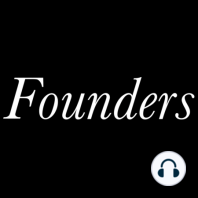87 min listen
#291 David Packard (Founder of HP)
FromFounders
ratings:
Length:
47 minutes
Released:
Feb 20, 2023
Format:
Podcast episode
Description
What I learned from reading The HP Way: How Bill Hewlett and I Built Our Company by David Packard.This episode is brought to you by: Tiny: Tiny is the easiest way to sell your business. Quick and straightforward exits for Founders. ----Follow one of my favorite podcasts Invest Like The Best ![2:01] Do our products offer something unique?[3:00] Customer satisfaction second to none is the only acceptable goal.[4:00] What I learned from rereading Jeff Bezos' Shareholder Letters for the 3rd time (Founders #282)[5:00] In Silicon Valley, the ultimate career standard was set by David Packard: start a company in a garage, grow it into the leading innovator in its field, then take it public, then take it into the Fortune 500 (or better yet, the Fortune 50), then become the spokesman for the industry, then go to Washington, and then become an historic global figure. Only Packard had accomplished all of this; he had set the bar, and the Valley had honored his achievement by making him the unofficial "mayor" of Silicon Valley.—The Intel Trinity: How Robert Noyce, Gordon Moore, and Andy Grove Built the World's Most Important Company by Michael Malone [6:00] Steve Jobs: The Exclusive Biography by Walter Isaacson. (Founders #214)[9:00] Gates read the encyclopedia from beginning to end when he was only seven or eight years old. — Hard Drive: Bill Gates and the Making of the Microsoft Empire by James Wallace and Jim Erickson. (Founders #290)[10:00] My father wouldn't let me quit.[11:00] Given equally good players and good teamwork, the team with the strongest will to win will prevail.[13:00] Zero to One: Notes on Startups, or How to Build the Future by Peter Thiel. (Founders #278)[17:00] That was a very important lesson for me —that personal communication was often necessary to back up written instructions.[21:00] Insisting On The Impossible: The Life Of Edwin Land by Victor McElheny [28:00] More businesses die from indigestion than starvation.[33:00] I found, after much trial and error, that applying steady, gentle pressure from the worked best.[38:00] Bill and I knew we didn't want to be a “me too” company merely copying products already on the market.[38:00] Netbooks accounted for 20% of the laptop market. But Apple never seriously considered making one. “Netbooks aren’t better than anything,” Steve Jobs said at the time. “They’re just cheap laptops.” Jony proposed that the tablets in his lab could be Apple’s answer to the netbook.—— Jony Ive: The Genius Behind Apple's Greatest Products by Leander Kahney. (Founders #178)[46:00] Gains in quality come from meticulous attention to detail, and every step in the manufacturing process must be done as carefully as possible, not as quickly as possible.[47:00] Exponential growth is based on the principle that the state of change is proportional to the level of effort expended.----Subscribe to listen to Founders Premium — Subscribers can ask me questions directly and listen to Ask Me Anything (AMA) episodes. ----Join my free email newsletter to get my top 10 highlights from every book----I use Readwise to organize and remember everything I read. You can try Readwise for 60 days for free here. ----“I have listened to every episode released and look forward to every episode that comes out. The only criticism I would have is that after each podcast I usually want to buy the book because I am interested so my poor wallet suffers. ” — GarethBe like Gareth. Buy a book: All the books featured on Founders Podcast
Released:
Feb 20, 2023
Format:
Podcast episode
Titles in the series (100)
#3 The Wizard of Menlo Park: How Thomas Edison Invented The Modern the Modern World: What I learned from reading The Wizard of Menlo Park: How Thomas Alva Edison Invented The Modern World by Randall Stross by Founders
